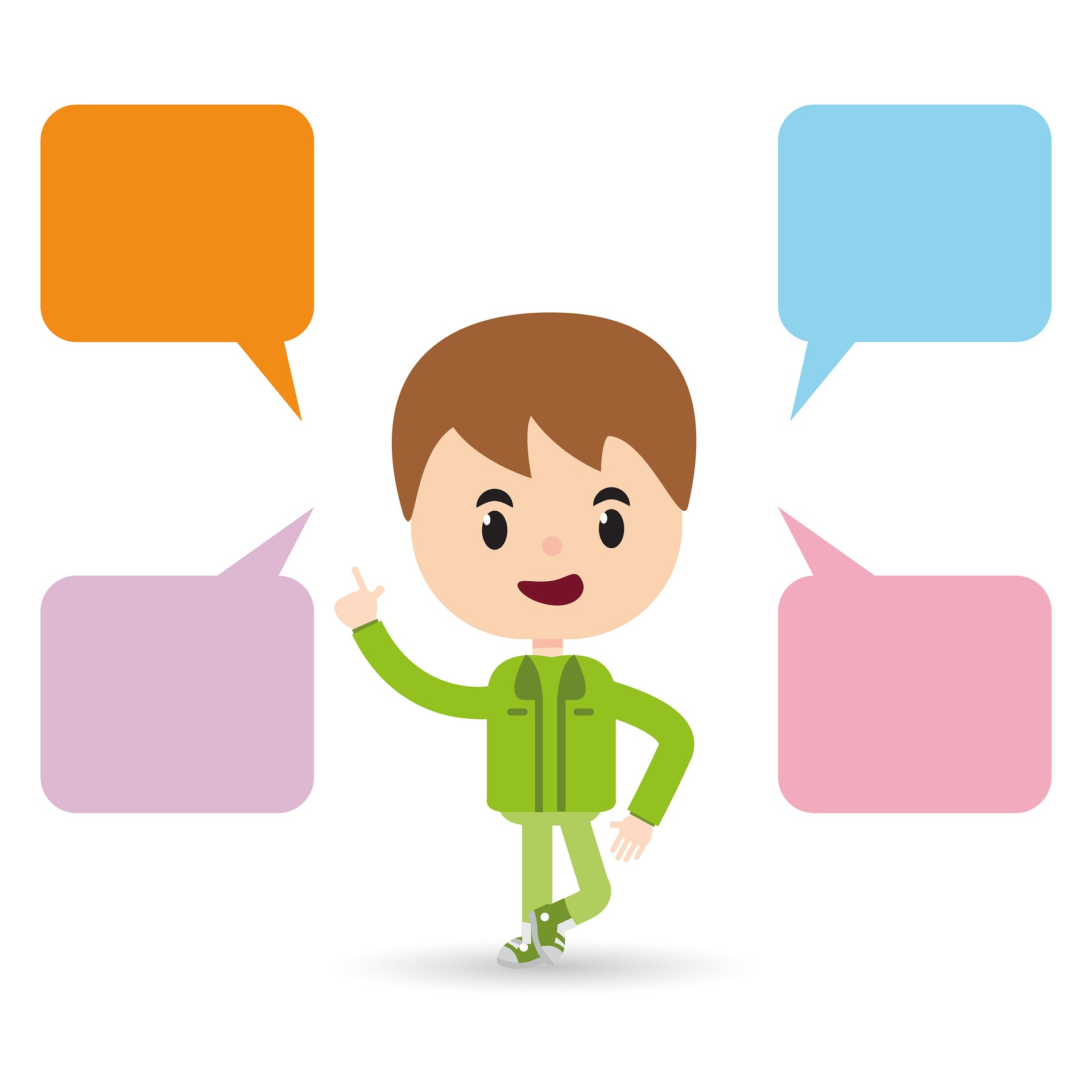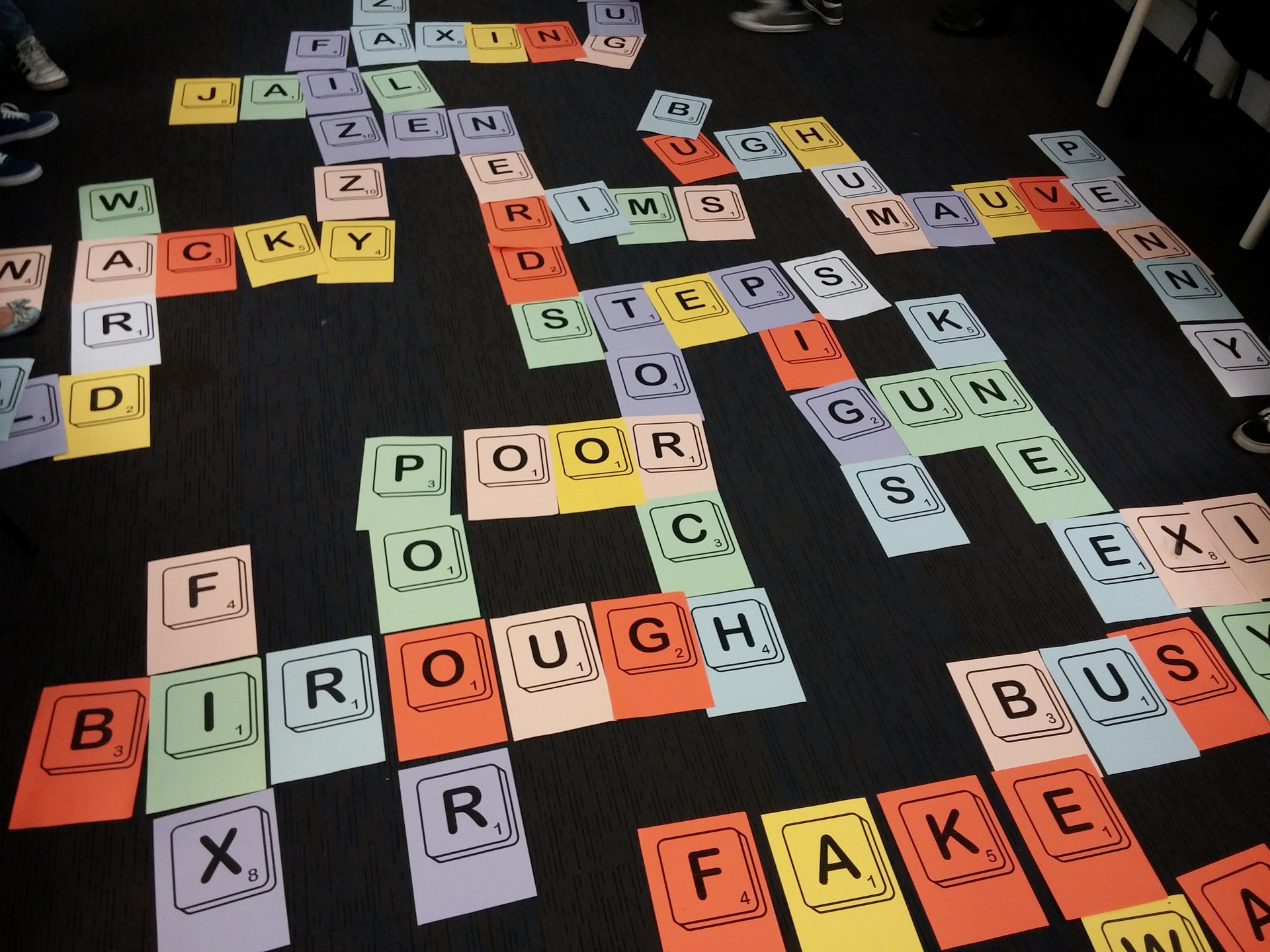Mastering grammatical rules and having a rich vocabulary may seem to be enough. But when it comes to communicating in English, the proper pronunciation is as essential as an abundance of the word stock and a good grip of the grammar, if not more. Mispronunciation of any language can create confusion, misunderstanding, and an overall bad impression.
A prevalent misconception is that if you are a native English speaker, you do not need to work on your elocution. On the other hand, if you are a non-native English speaker, you have to invest your efforts to bring yourself a native accent. Your success as a foreign speaker depends on how close can you get to the original accent.
However, that is a wrong idea to have. As a matter of fact, an accent refers to a distinct way of speaking a language. And, the appropriate pronunciation of a language refers to the correct use of articulation, stress, and intonation when uttering each word.
Regardless of whether the English language is native or non-native to someone, unclear and incorrect delivery of words is unwanted. The best time to structure someone’s speech is when they are still in their childhood. It paves the children’s way to a better future as, by the time they grow up, they will already have the hold of a correct speech pattern.
In this article, we elaborately talk about why it is necessary to have your children learn the pronunciation of words. We also provide advanced guidelines to how kids can achieve the proper elocution.
Table of Contents
Chapter I: The Importance of Making Children Learn the Right Pronunciation
Have you ever been in a situation, where someone says something to you, and you are unable to understand what? Although that person is talking in a language pretty well known to you, you have to ask them to come again?
For example, someone said, “You have a nice dress.” But initially, you thought it was “You have eye stress.” The wrong way of delivering words may often create such miscommunication.
What makes building the practice of vocalizing sound in the right manner in kids is discussed here.
When a kid is inaccurately uttering a word, it is most likely that people may interpret a wrong meaning of what he or she is trying to say. If that keeps happening, a child will often not be able to communicate with people about what exactly he feels or thinks about something without being misunderstood. His or her words will either be misheard or be misinterpreted from the way they sound.
Even when kids are saying words correctly, there may be other problems in their expression of a language. When a person speaks with proper intonation, the pitch and the rhythm in their voice add feelings to their words. In addition to that, depending on the stressing of words, the focus and meaning of a speech are defined. For instance;
“John was playing football.”
“John was playing football.”
If in each sentence stress is put onto the italicized words, they don’t quite express the same thought. Whereas the first one focuses on the fact that John was playing football, the second one rather highlights that football was the sport being played.

Means, these can impact the meaning as well as the important points of a sentence. If parents don’t teach children the proper way of delivering their speech, their thoughts and opinions may, time and time again, be misinterpreted.
To interact with people is the key to building good social relationships. Unclear and improper speech may significantly affect how a child bonds with not only other children but also adults.
This will result in your children not willing to attend gatherings, not having friends who they can trust, and being detached from society in general. Being introvert and not socially interacting are different.
Being unable to speak in a language fluently can make your child socially awkward, uninterested in involving into conversations, and make them keep things to themselves.
- Avoiding Behavioral Difficulties:
From being unable to maintain social relations to failing in engaging in complex conversations, things often may get very frustrating for your youngster. They start losing confidence. This piled up frustration doesn’t take too long to give rise to behavioral issues in kids.
A child growing up with behavioral difficulties has to face many more struggles while growing up. Such problems only accumulate and get worse over time, if not taken proper care of. Prevention is better than cure- so do not let your child be unable to find self-assurance.
Although creating an impression on others may not be important at a young age, as one turns into a grown-up, creating a good image in the surrounding environment including university, work-place, and society is vital.
If your offspring is trained to have a flawless articulation from an early age, even before he or she enters adulthood, he or she will have a well-practiced and impressive manner of speaking. In contrast, if they are not introduced to elocution, they may face big trouble in adolescence to cope up with the situations demanding high interpersonal, interactive skills. They may often get embarrassed if they do not have proper word delivery and intonation.
You may think if my child is a doctor or a scientist, there is no necessity of concentrating on pronunciation. But doctors have to communicate with their patients throughout their working hours. And scientists may often need to explain their theories verbally.
You can never say elocution is unnecessary to focus on because you don’t know where your kid will head to in the future.
They may be able to build a good career, but with a proper grasp of speaking in English, they will always get the chance to be more successful.
In today’s world, the job market is excessively competitive. Presentation and communication skills are a prerequisite of almost every sector. So, don’t let your child fall behind in the future for something you can modify now!
-
International Communication
English being an international language, it is of utmost importance to make your kid’s speech delivery understandable and faultless to everyone to deal with international projects, meetings, seminars, and other programs during school as well as in work life.
Even during traveling, or moving to another country, comprehensively speaking English is a prerequisite. Otherwise, spending days in a foreign country without being able to make people over there understand what one is saying is quite a hassle.

In a nutshell, the English language works as a whole. Grammar, vocabulary, and articulation are all equally demanded. A child lacking proper pronunciation will lack confidence, social skills, and also may have a bad impression in certain situations while growing up. In addition to that, elocution is also imperative to maintain international relations and achieve career goals.
Chapter II: How to Improve Your Kid’s Word Delivery?
Motivate Your Children
You can’t really force youngsters to be good at something they lack the will-power to accomplish. Hence, it is an essential requirement that you motivate your children to work on their word delivery.
You have to make them understand the necessity of having the appropriate pronunciation. So that when they’re learning, practicing and trying to reach an objective, they are doing it enthusiastically, and not out of pressure.
Intriguing Tips That Can Help
The Basic Rules
Similar to grammar, spoken English comes with a set of rules to follow. To improve children’s speech delivery, the first and foremost step to be taken is getting them to be familiar with these rules as well as some basic knowledge.
Phonemes, stress, rhythm are all components of a sentence when speaking. The 26 English alphabets can produce up-to 44 distinct sounds- the phonemes. For instance, the ‘A’ in ‘case’ and ‘cat’ are uttered differently. In the first word, ‘A’ makes a long vowel sound, which is the same as the name of the letter. In the second word, it makes a short vowel sound. Even the NATO Phonemic alphabet can come in handy.
Often, letters are silenced in a word. E.g., ‘L’ in half, ‘K’ in the know, and many other letters in many other words.
In addition to phonetics, attention should be paid to stress. A word may have one or multiple syllables or ‘units’ of one vowel sound, either or not with surrounding consonants. Stress refers to the emphasis on certain syllables in a word.
Kids must be introduced to the significance of stressing syllables in a word as well as stressing words when putting them into a sentence. Stressing will be different depending on if a word is used as a noun, verb or adjective.
It is very important to teach your little ones all these basics as they start to learn English.
Focus on Understandability
Frequently people are discriminated on the basis of the ‘accent’ they have. However, having an accent is normal. The focus should be on making your child’s talk clearly, and understandably. Encourage your kids to speak with comprehensibility.
The Origin of Sounds
The sound wave generated by the vocal folds of humans is modified by the articulators (tongue, palate, lips, etc.) to produce the different sounds of the letters we hear. Thus, the pronunciation of each letter involves the use of particular articulators in a distinct way.
To illustrate, saying the letter ‘M’ involves bringing together your lips, whereas saying ‘N’ involves touching the roof of your mouth and a slight part of your front teeth with your tongue. Both of these are nasal consonants.
While saying ‘Th,’ the tongue has to reach in between the top and the bottom teeth.
For every word, it is vital to teach your children where the sound of each letter has to be originated from, in order to have a proper pronunciation.
Pronunciation and Meaning
When you’re giving your child the English lessons, make sure you teach them the accentuation and meaning of a word at the same time. In this way, they can memorize it better.
Also, instruct them to keep the focus more on how the word sounds, rather than how the word is spelled while talking.
Listening Carefully!
It is mandatory to learn to listen before one learns to talk. That’s how youngsters should be trained in order to have better articulation. Instead of listening to speaking exercises, keeping ears open to random videos, movies, TV shows, as well as real-life people who are good speakers, can be much more helpful.
You can try making your little one watch a movie with subtitles first. The next time you show him or her the same movie without the subtitles and ask to listen carefully. This will guide them to concentrate on the pronunciation of words.

In addition to that, kids these days do not only play video games but also watch youtube videos on particular gameplay. These videos too can come handy, if you inspire your kids to take lessons from it.
Brushing Up
Providing your kids with the knowledge, and making them understand the rules as well as techniques to improvise their speech can be useless- if those aren’t practically implemented. The key to becoming skillful at something is to practice over and over again!
One fundamental way to brush up the skills is to read out loud. Storybooks, paragraphs, newspaper- instruct your children to read it out loud. In this way, they can hear themselves and correct what sounds wrong. In this way, they will not just get to practice speaking, but will also recognize specifically on which points they struggle.
For example, some kids may face difficulties in uttering specific letters; some may tend to pronounce vowels too long, and some kids may have confusion while saying the longer words.
Poetry
Recite rhymes and poems to your little ones starting from their young age. This reflects the proper intonation of words, and also makes it easier for the children to absorb it. At one point, your children will start to join you in the recitation.
Reading stories from books or just story-telling from your memory can also help your child pick up the effortless articulation of words from a young age. After all, infants mostly have parents as their favorite figures, and they try to copy things that they see their parents do.
Singing
Singing? Although it may sound like singing has got little to do with pronunciation, it can actually prove to be wrong. Everyone loves music, and so do children. Listening to their favorite song is something they can do effortlessly. If they try to sing that song following lyrics, they will have to practice unless their articulation sounds good enough as the song.
Children often have some best-loved musicians who inspire them. Trying to cover their songs develop a sense of refining how their words sound.
Also, don’t worry if your children are already too big to recite to them rhymes and poems. Make them practice “shadowing” by making them sing along with the song. Their voice will only shadow the original song correctly if they’re getting the correct utterance and rhythm of the lyric.
Correcting Bit by Bit
If you wish to repair everything wrong with your child’s speech pattern in one day, it is not possible, is it? In fact, targeting several issues at the same time may turn into wastage of all efforts. The best way is to move step by step, and aiming at one problem instead of multiple at a time.
Don’t rush. Let your child take the time.
Slow down!
It is not necessary to speak fast if one wants to be fluent in a language. Practicing to speak fast as a learner will make your kids nervous, and also make their speech unclear. Moreover, it can mumble up words while talking.
Thus, go slow.
A Learning Partner
Having a companion in their process of learning will make things much easier for youngsters. A mate with whom he or she can set goals, mark each other’s problems and help to fix it. Learning will hence be much faster.
Also, it is very important to conversate in a language to truly master the speaking skills. Getting your child a partner will make sure that he or she is getting to exercise proper conversational English.
Getting an Opinion
Get an opinion on your little one’s progress from an expert- a teacher, or a good speaker, or someone with experience.
Give your children the compliments they deserve. Try to inspire them rather than demotivating them so that they can build the willpower to overcome all their problems in elocution.
Self-assessment
Encourage your children to evaluate their own improvement. They can do it by recording their speech. Recording and re-recording until they think they have reached their goals will not only fix what’s wrong, but it makes them practice and revise repeatedly. Being able to solve the problems on their own will boost their confidence and enthusiasm.
The Body Language
Correct articulation is not limited to the sound of the words, but also one’s approach has to be considered. Starting from facial expressions to certain gestures of a person’s hands and body, everything has an impact on how one communicates verbally.
You can prepare your children by making them practice talking in front of a mirror so that they can learn the do’s and don’ts. They can always have a role model they want to follow.
Chapter III: Apps to Improve English Speaking Skills
Why using apps is a good option?
- Time and space: Using web apps and especially mobile apps do not require committing a lot of one’s time. Particularly for kids, who do not like to do one thing for too long, these applications can be very beneficial as they can start from where they left in the previous session.
Also, children can practice speaking anytime and anywhere using apps, for instance in their bed, while eating, when outside, simply just at whatever time, and at whichever place they want!
- Attractive for kids: While English exercise sessions may get boring for kids, playing on the phone, or watching videos on a device is something they like from a very young age. They may, in fact, enjoy their time getting their lessons from an application.
Some apps have fun elements, games involved in the teaching process. This will keep the young ones motivated.
- Affordable: Most of the apps being free, it is very convenient to seek help from these. Even for the apps that are not completely free, the lessons, activities, and resources are very much affordable.
A few apps are named below –
This app focuses not only on the speaking but also all other aspects of the language. One of the best things is that the app takes a test containing 20 questions, in order to assess the user’s current knowledge of the language. It then filters only the lessons most suitable for the user.
Apart from books, audiobooks, and news, the app uses interactive games in which one has to earn coins to unlock the following lessons. For youngsters, this is very challenging and keeps them excited.
ELSA or English Language Speech Assistant, specifically emphasize on tuning one’s pronunciation. First, this app will listen to your child speak; then it will detect what exactly he or she is facing trouble with, e.g., syllables, rhythm, intonation, etc.
A mobile and web-based application which teaches the basic rules of spoken English. Those include, the utterance of short and long vowels, double vowel sounds, voiced and voiceless consonants, voices and silenced sounds. It also has lessons on the movement of mouth and tongue for making sounds behind every word.
Also, the app provides the chance to listen to the pronunciation of each word searched or taught in the practice area.
This is an app designed to rehearse conversational English, containing previously recorded conversations. One can also record and listen to their own speech in this app.

A more advanced version of this application is the English Conversation Practice app, to practice more and more English conversations.
It can be sometimes problematic that Duolingo starts from the very basics of a language. However, this application teaches the articulation by breaking it down- which makes it easier to understand the absolute sound of each letter in a word, and each word in a sentence.
Solely focuses on teaching English speaking and listening. Consisting of words and phrases spoken by native speakers, this assists one in becoming fluent in the language. When the sentences are narrated by native speakers, there is less chance of an error.
The most attractive part about this web and mobile app is that it uses 3D animations to reduce the wrong intonation. The app also contains interactive jaw exercises and face diagrams to guide on tongue and mouth placement for uttering certain sounds.
-
Using a Virtual Assistant Program
Siri and Google Assistant, respectively for iOS and Android are the electronic programs that can answer questions, provide recommendations, search as you dictate it to, or perform other functions on your command. Your children can actually have actual conversations with these programs, and also learn to enunciate.
If a word is mispronounced, children can instantly recognize that from the response by the program. When the program mishears a word that one has said, the answers or the search results will not be as expected. It can be instantly detected what the program heard instead of the actual word. Children can then work on those particular words or phrases.
Plus, it’s fun to ask them anything one likes! There is no way children will not like having a conversation with these programs.
This might not be an application, nonetheless, google translate can be an absolute savior. Because, it doesn’t only translate words and sentences from one language to another, but it also gives one the chance to listen to the correct pronunciation of words in any language including English.
In addition to these few applications mentioned here, there are many more apps to help kids work on their speech delivery.
Chapter IV: Having Personal Trainers for Better Pronunciation: Would it Help?
At the end of the day, apps are designed programs who have a limited number of instructions in them. Whereas problems with speaking can greatly differ from person to person, these programs will only have limited solutions to offer, which are very generalized.
Employing a personal tutor for your little one besides only depending on apps can be a favorable choice. Having a personal trainer for your child who is a native speaker, will help him or her getting introduced to the right way of saying words.
Multimedia, web and mobile applications will only make children observe, or have indirect conversations. However, having a trainer ensures direct, face to face, and extended conversations. This is at the same time an in-depth practice session and a process to uplift the assertiveness of youngsters.
As the conversations will be in person and uninterrupted, it will be much easier for the tutor to identify the precise struggle your child is having. They can also come up with alternative solutions until the problems are solved if one suggestion or activity fails.
Lastly, recruiting a trainer who will be a friendly guide to your kids can make learning much more fun, easier, and less time-consuming. The mentor can involve in fun activities with the kid. The perk being, if your child likes the trainer, then he or she is not going to make excuses to avoid lessons.
Chapter V: Speaking Activities that Can Help to Improve Pronunciation
Games
Children are always attracted to activities that are thrilling. Playing a scored game with your child will play the trick. Your kid will try to win it, and in this process will learn correct articulation of words.
You can try a game of rhyming words. Draw an object, for example, a chair, and ask the kids to come up with words that sound similar to the object in the picture. Each new word gives them one point. Fix the number of rounds to be played, and whoever has higher points in the end wins.
Move your mouth to say a word, without making any sound. Ask your child to guess the word. Playing this by taking turns will help your kid to understand the movement of mouth necessary to make different sounds.
The best part is, you can design your own games based on your child’s interests!
Now you can check idioms with exercises and play fun quizzes on SpellQuiz.
Practicing Minimal Pairs
A minimal pair refers to a pair of words that are distinguished by only one sound. E.g., it/eat, wait/wet, ice/eyes, etc. These words can be rehearsed by uttering repeatedly. Or, an ‘odd one out’ game can be played.
Put minimal pairs and an odd word in a group of three. For instance, pace/case/plays. Create a number of groups and ask your child to read out the words and cut the odd one out for each group.
Tongue Twisters
Tongue twisters can are difficult to articulate, but they are a fun way to practice clear utterance of words. These have to be repeated quickly, and often mistakes occur. However, rehearsing tongue twisters until they sound perfect can be a key to achieving clear speech. Kids can learn to distinguish between similar-sounding words.
A few examples are,
- She sells sea shells on the seashore
- A proper copper coffee pot
- Peter Piper picked a peck of pickled peppers. Where’s the peck of pickled peppers Peter Piper picked?
- A big black bug bit a big black bear
- Around the rugged rocks, the ragged rascal ran
- Red lorry, yellow lorry, red lorry, yellow lorry.
The Colored Vowel Chart
The color vowel chart involves a method that uses visual learning strategy for correct pronunciation of words. In the color vowel chart, each color represents a vowel sound. To give an instance, the color green is the sound of vowel /iy/, which is found in the words “tree” and “reach”. The color blue, on the other hand, represents the sound /uw/, as in the words “student” and “moody”.
For each of the 15 vowel sounds, color vowel chart also employs a noun along with the color adjectives. Green tea, Blue moon, Red dress- so that the stress of a vowel represented by color can be determined from the noun.
Kids can make a list for each of the colors of words that make a similar sound of vowels. They can also make many other uses of the colored vowels for the better learning of how to say a word correctly.
The “Jazz Chants”
Popularized by Carolyn Graham in the 1980s, jazz chant is an expression by which spoken English is linked to the traditional Americal jazz. It is appropriate for children because it makes the utterance of words easy by breaking them down into chunks falling into short jazz beats.
Children can be assembled into a group with their friends. They will be given a chant depending on the problems they face during speaking. Then, they can clap and march together to build the rhythm.
1,2, I like you
1,2,3, you like me
Chants are always fun for children, aren’t they?
Chinese Whispers
Chinese whisper is a multiplayer game commonly played by children. The first player whispers a message to the next one, and then it’s passed on to the next one. Once the message reaches the last player, he or she says it out loud. The distortion from the original message can then be compared.
If Chinese whisper is being played as a part of a lesson, children can figure out which words are mostly being changed in the final statement. So, they can then work on the elocution of those words.

Chapter VI: List of Online Resources for Better Pronunciation
Apart from using apps, there can be many online resources from where your child can gather knowledge, learn techniques, and practice speaking in English. Some of these are discussed here.
Podcasts
Podcasts are a series of downloadable audio, and which are free! Videos podcasts are also available. You can make your children listen to podcasts regularly, especially the ones made by native speakers. To learn American English, NPR or National Public Radio podcasts can be very useful.
YouTube
Kids are not unfamiliar to YouTube videos. YouTube is where children can find everything they will ever ask for! Songs, gameplay, movies, memes, any form of entertainment as well as knowledge.
Many channels on YouTube are dedicated to guiding people with the proper pronunciation of words. Watching these videos can have a huge impact on your child’s English speaking.
VOA or Voice Of America is a YouTube channel uploading videos that are like news reports, except, they are conducted by trained English teachers. They utter each word clearly, and the sentences go pretty slow so that it’s easier to understand the pronunciation. It also comes with subtitles, so one doesn’t have to confused about any word.
This channel mainly focuses on the articulation of words in English. How mouth and tongue movements are involved in creating certain sounds can be very well understood by watching the videos from this channel.
This channel posts videos of interviewing English speaking American people, to give an idea about how everyday English is spoken.
These are some channels that you can subscribe to for regular updates and videos, which will assist your little one in practicing their speaking skills. You can also always search on YouTube if you want to help your child to pronounce a certain word, or want to find a solution to certain issues that he or she is having while learning.
Not only that, if your kid is interested in watching interviews of his or her favorite celebrities and trying to understand those, even that can prove to be very useful.
This is a website that assists one learn English- including grammar and speaking. What makes it attractive is that it has sections for practicing listening, and also interactive picture dictionary.
This website provides tips, interactive phonemic charts as well as webinars on the articulation of the English language. You can also browse an exclusive series of short videos on this website to work on your child’s speaking skills.
Based on teaching North American English pronunciation. This site focuses on stress, rhythm, intonation. It also covers English communication skills. A list of exercises available for listening and speaking.
Uses visual representation through animation with sounds, to help understand words clearly. It also pays attention to different aspects of stress, vowel, and consonant sound.
The website includes computer-assisted language learning activities, quizzes, word games, puzzles, proverbs, etc. The site particularly has a section to focus on the pronunciation of words. This includes practicing the minimal pairs.
On this site, your kid can learn how sound is produced. It also provides audio and video files for assistance. Helps kids identify the difference between very similar words.
It is an online course to teach people elocution of words and employs a skilled American trainer. You can try the seven day trial for free, or register for the full version.
Chapter VII: The Difference Between Accents and Pronunciation
English being an international language, there is great diversity in how the language is spoken across the globe. For example, British and American English vary in their use of vocabularies, such as ‘autumn’ for British and ‘fall’ for Americans, ‘football’ in British English and ‘soccer’ in American English. But apart from the words, the accent is what is significantly different.
In fact, there’s a different phonemic chart for British English and American English. The way British people and American people say particular words are not the same. For instance, for the word ‘tomato,’ in an American accent, the ‘a’ is pronounced like the alphabet. However, in standard British, it is pronounced like the ‘a’ in ‘car.’
Know the Difference
Similarly, English is spoken differently across the world, including native and non-native speakers. Countries that have English as their first language, e.g., Ireland, Canada, Australia, and so on have differences in their way of speaking English. Also, countries that have English as their second language, e.g., India, Philippines, Poland, etc. have their distinct way of pronouncing English words.
Spoken English doesn’t only vary among countries, but also across regions where English is the predominant language. In the USA, different dialects exist for different regions, i.e., Northern America, Southern America, Midland, etc. Dialect is an all-encompassing term to refer to a regional language. An accent refers to the part of a dialect that reflects a particular way of saying words of a language.
Don’t Get Too Confused!
The question then may arise, if accents vary, why is it important to learn to enunciate properly? The goal is not to talk like a speaker from a particular region. It is to speak English in an understandable way, which is pleasant to hear. Also, when a person is paying attention to learn proper articulation, it becomes much easier, in general, to understand and communicate in English. In fact, the person who works on having a correct pronunciation can also differentiate between accents on their own upon hearing.
Chapter VIII: Speech-related Disorders and Ways to Overcome
Imagine your 12-years-old child having trouble in saying words correctly, and you’re totally frustrated about the situation. Instead of understanding him or her, you create immense pressure which causes him or her to have a breakdown. It’s a scary thought, isn’t it? What could be wrong? Rather than wondering when it is too late, speech-related disorders should be identified at a young age so that they can be cured.
Many children may learn to talk a little late, many may face problems at a very young age to utter certain sounds. However, most of the times these troubles are fixed naturally with age. Nevertheless, some speech trouble at ages as young as 2-3 years can be a sign of speech disorders or speech sound disorders.
What to not worry about:
As a parent, you should not be worried just your children does the following at a very young age.
- Replace sounds in words. E.g. ‘nana’ instead of ‘mama.’
- Simplify complex sounds.
- Miss sounds from either end of words. E.g. ‘par’ instead of ‘park.’
- Fumble syllables in words.
These are very simple mistakes, and okay to make for kids as big as three years old. You just have to make sure your kid is not making lots of errors.
Speech disorders refer to the conditions in which a person is unable to deliver a normal speech. Being mute also falls in the category of speech disorder.
On the other hand, speech sound disorders are when children have trouble saying certain words past the expected age. Kids who have this disorder may be having one of the following struggles.
- Not producing certain sounds
- Not producing sounds correctly
- Unable to use sounds properly.
Types of Speech Sound Disorders
Articulation Disorders
An articulation disorder is the inability to physically produce certain sounds and words correctly. Sounds are often deleted, added, altered, or swapped. This difficulty is connected to the use of articulators, i.e., teeth, tongue, lips, palate, glottis, etc.
However, this is not a developmental impairment. Thus, over proper guidance along with patience and hope, these problems can be overcome.
Phonological Process Disorders
In such disorders, children have trouble understanding how the sound system works. Often, they get confused and cannot differentiate two different sounds or phonemes, and end up making the same sound for two different letters. For example, saying ‘tall’ for both the words ‘call’ and ‘tall.’
You should learn more about phonemic alphabets to teach them better.
In some cases, kids may use one phoneme instead of several others. In that case, the chance of error is much higher.
We have discussed the minimal pairs of words before, and those can actually prove to be a great exercise for children with phonemic disorders.
Some kids with this disorder often fail to recognize that they’re using the same sound for multiple phonemes but can distinguish the phonemes in someone else’s speech.
Mixed speech sound disorders: Articulation disorder and phonological disorder may coexist in the same child, and that is known as mixed speech sound disorders. The priority when assisting these children is to teach them the phonemes, differences and provide therapies based on those. Since even after learning sounds a child must know how to produce them using articulators, activities to eradicate the articulation disorder is also necessary.
Residual Errors
Most speech sound disorders can be treated in childhood with considerable success. Nevertheless, some errors may sometimes persist in their adulthood. These persisting difficulties are termed as residual errors and may remain lifelong.
Causes Behind Speech Sound Disorders
Most of the times, the cause behind these disorders are unknown. Yet, in many cases, any of the following have shown to be a reason.
- Head injury that caused brain damage
- Brain damage leading to neurological disorders; for example, cerebral palsy
- Intellectual or developmental disability; e.g., autism
- A history of ear infections leasing to hearing loss
- Physical abnormalities, including cleft palate or cleft lip
- Disorders affecting the nerves involved in speech
- A genetic disorder, such as down syndrome
Diagnosis and Treatment
Parents can detect early signs in their babies as they go through developmental phases. If parents notice their children making an unusual noise, having trouble pronouncing words even after passing the expected age, and repeating similar patterns of mistakes, they may seek help from experts.
It is important to check your child’s hearing before concluding anything because it is possible that the child has had a partial hearing loss and simply cannot hear clearly sometimes. This may make them miss out phonemes and letters while learning to talk.
When the hearing loss is ruled out, a speech therapist or speech-language pathologist may provide a wide range of services in order to treat your kid.
Effects of Speech Sound Disorder on Children
- Kids may face trouble linking together more than one or two sounds. Eventually, they will talk less with people as they notice something is wrong with them.
- If by the time your child reaches the age to join the school, and yet has problems with speaking clearly, they may have difficulty communicating at school.
- Children who have speech sound disorder due to physical abnormalities, such as cleft lips, may face problems like dribbling and messy eating habits.
- Children may become distant and frustrated and will suffer in the long run.
The Law of Attraction
It is crucial to have a positive outlook on the situation. A parent is the prime support system for every child. Once you lose confidence in the fact that your child’s condition will cause no harm to his or her future life, and can be fixed with some assistance, your child will be frustrated.
On the other hand, if you deal with the situation with patience and positivity, your kid will have the strength and support they need.
After all, if the disorders are recognized and diagnosed early, they can be completely overcome by the children with appropriate guidance. They can learn to communicate properly and also find comfort and confidence in speaking.
Chapter IX: The FAQs: Common Questions about Pronunciation
Few common questions that are asked by parents regarding their children’s English speaking are discussed here.
Is pronunciation important?
Having a clear and acceptable speech pattern is important in order to communicate. However, trying to have an accent like another person is not necessary. Everyone has a unique voice, and it is okay to sound different, as long as one is saying the words correctly.

Starting from what age shall I focus on my child’s pronunciation?
It can get confusing for many parents that how early should they start. Of course, trying to teach your toddler to speak perfectly is not a very good option.
The right age to start emphasizing on your child’s speaking is around 4-5 years. Children go through an ‘imitation’ phase at this age, which means they try to imitate whatever they hear or see around them by role-playing. This is the age when they actually start learning new words, phrases, and sentences.
It is the absolute right time to start having conversations with your little one, and also correcting words, they tend to utter wrongly.
How to fix a toddler’s mispronunciation?
Toddlers are children 1-3 years old. It’s completely normal for toddlers to mispronounce words. Parents don’t have to do much in this case. Instead of telling them they’re wrong, just repeating the correct word several times will be enough.
How to encourage a toddler on his/her spoken language?
Babies learn words from their surroundings, as they hear people talk.
It is most important to talk to the toddlers as much as possible. Running commentary on whatever you’re doing while you’re with them will help. Supplement it with asking questions, even if the kid doesn’t answer. The more people will talk to toddlers, and in front of them, the more they’ll learn about communication.
Singing and reading to them from time to time will make learning fun for them. Also, pointing at things and asking them what those are will develop a practice of communicating, and also picking up the right sound of a word.
How to make learning pronunciation fun?
Depending on your child’s interests, involve him in activities that will help him or her get a grip of the articulation of words. Reading, watching English movies or series, playing games that involve speaking activity- do as much as possible. Encourage your kid by reflecting on how impactful can learning to deliver a speech properly be.
What is phonics information?
Phonics is the relationship between how a word is spelled and how a word is uttered. Children are taught to read a word by breaking it down into the ‘phonemes’ and to blend these together to make the complete word.
Aren’t the spellings in English too unpredictable and irregular to apply phonics?
Although there are many exceptions where the pronunciation of a word breaks the rule of phonics, applying phonics is still needed. For a larger part of the language, learning phonics information and applying them properly helps get the hold of better pronunciation.
How important are vocabularies in Spoken English?
Expanded vocabulary does not only enhance a person’s reading and writing skills but also brings a variety to their speech, making those more attractive.
But, if your child is not good at the proper articulation of words, having substantial vocabulary knowledge will be of no significance. Also, in the case of comprehension during reading, even if certain unfamiliar words appear, most of the times a contextual meaning can be assumed.
That is why the primary focus shall be on improving how your kid is making the words sound. Once the pronunciation is satisfactory, vocabularies are definitely going to add to the skills.
How to make children more confident in speaking English as a second language?
Starting with more one-on-one conversations will help to build up confidence in your child initially, and he or she will have no fear of getting embarrassed. Also, engaging in conversations with native speakers will assist them in understanding the pronunciation and intonation. Keeping a personal trainer may help in this situation.
Also, complimenting children on their progress, and not pressurizing them to be perfect will keep them self-confident.
Should my child learn British accent or American accent for ESL (English as a Second Language)?
British and American accents are very different from each other. That’s not it, even within the UK or the USA, several dialects and accents exist. It is more important that you focus on your children’s learning of speaking words and listening to words in a way that your kids can understand the various accents when someone is talking to them. Absorbing a particular accent is not required for ESL – learn more.
How much should parents get involved?
After their children have crossed a certain age, many parents may worry if they’re overstepping on their children’s interests. It is true indeed that forcing your son or daughter to work on their English pronunciation may put them under pressure.
Hence, the best option is to prepare your children from an early age in a way that they themselves can realize the importance of being good at speaking in English in a proper way. If they’re showing disinterest, you can always talk to them about it rather than pushing them to join a particular activity.
That does not mean you make yourself too distant. In that way, your little one will not have the assistance they need. After all, the guidance of a parent is crucial before the learning process at school or society begins.
How much time a day shall a kid practice for having better articulation?
There have to be no fixed hours a day for your child to practice speaking. The speaking and listening activities are very flexible, and they can do it whenever convenient. But for a scheduled progression, you can make a daily routine for all the activities your child will perform.
In the morning they can sing the rhymes, in the evening they can read as well as practice speaking, on alternate days they can have listening exercises, and on weekends they involve in special activities like games or movies. Mobile applications are very versatile and adaptable, and they can be used at any time and at any place to have practice sessions.
In spite of everything, it depends on your child how much of activities he or she must cover in a day. If you’re loading your little one with a lot of activity, they might just fail to memorize what they’re learning. The learning process has to be efficient. Thus, provide your child daily with the information only as much as he or she can absorb in a day.
Shall I pressurize my child to say words he/she is facing difficulty pronouncing?
No. Creating pressure on youngsters or compelling to do something is a very bad way of getting them to work. That makes them think their parents will not understand them, and they will become reserved and distant.
If children are having a problem with uttering certain words, pay attention to the pattern of the issues they are having. You can try alternative practices to make them say the word properly. If it still doesn’t work, you can consult an expert about the situation.
Sometimes, this can be a symptom of a speech sound disorder. You must not ignore the struggle of your child and you have to notice the little details to reach a conclusion.
Why is my child having trouble pronouncing words?
Toddlers and even children up to the age of 7 may make mistakes in their speech, that is often normal. Sometimes kids will create their own easier, simplified versions of words they find complicated. Sometimes they might add or remove letters from a word while saying it.
Nonetheless, these errors go away as the kids get older. By the age of 8, children are expected to make speech sound properly.
If the problems exist even after a certain age, and also if you notice some issues unusual in normal kids, it is possible that your kid has articulation disorder or phonological disorder. In that case, you should see a speech-language pathologist.
However, speech sound disorders are mostly treated successfully while these young people are still in their childhood. So you should not worry if your child is having problems, you have to observe and be supportive.
Shall I tell my son/daughter about his/her speech sound disorder?
Children will automatically learn there is a problem in the way they talk once they communicate with people, as it’s different from everyone else. Under the circumstances, if you decide to not tell your children about the disorder they have, they may, in fact, think they suffer from something worse. They may feel like they are defective.
Instead, talk to your kid about the problems he or she is having. Tell him or her about the condition, and that it is okay to have it. Enlighten them about the fact that the condition is not permanent, and that practicing more and more, as well as taking speech therapies can make their problems go away.
Be your child’s partner in speaking exercises. Keep them motivated and never make them feel like they lack anything because they don’t.
Chapter X: Final Words
The teachers often neglect to teach youngsters the proper delivery of words, believing that English is a language all about literature. They think, “If a child is able to read from books and perceive the meaning of a text, why bother to give so much attention to how each word sounds?”
English is the third most widely used language in the world and is an international language. For higher education and a shining career, having the knowledge of written English and rich vocabularies is not enough, as the world has become communication-based. Moreover, having a precise pronunciation starting from an early age is definitely impressive.
Brushing up your child’s English speaking with reading out loud, listening, and speaking activities will take them one step closer to having an appropriate speech pattern. The more they practice, the better they learn. You can covert learning pronunciation into fun activities such as singing, playing games, browsing YouTube and other resources, watching and listening to multimedia.
Nevertheless, you should never pressurize your kids to teach something. Let them take their time as you guide their way as a parent.
Taking everything into account, a little work today will help children to be confident as their impressive pronunciation will pave their way to much easier communications and overall, a brighter future.
Now you can take part in online Spelling Bee too! Check out the SBO section on Spellquiz today! It’s a great way of practicing spelling quiz for grade 4 or spelling quiz for grade 5.
Also, try this vocabulary test to understand your current skill level! Try the spelling test to master English spelling! Also, don’t forget to check the complete list of spelling words.















































